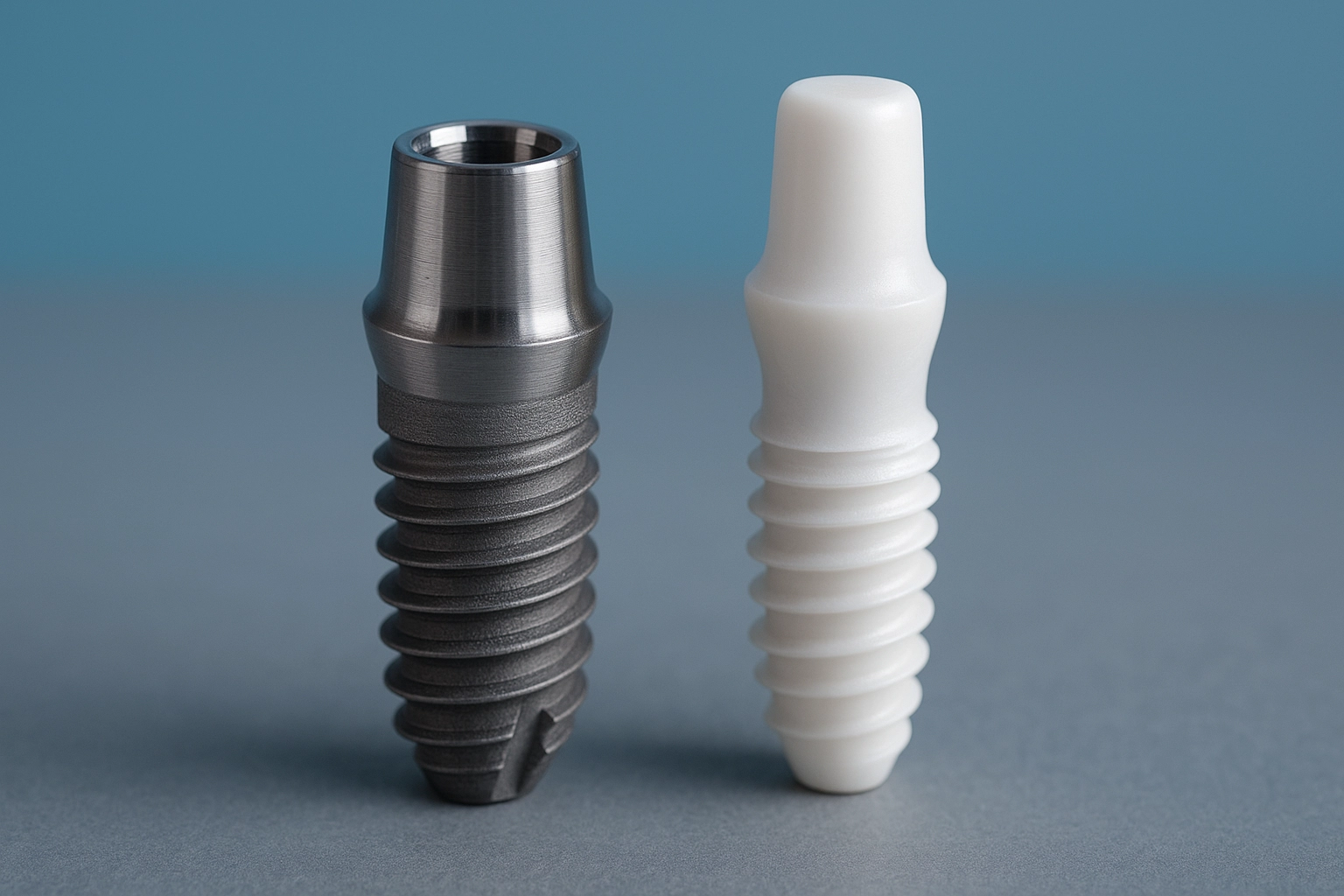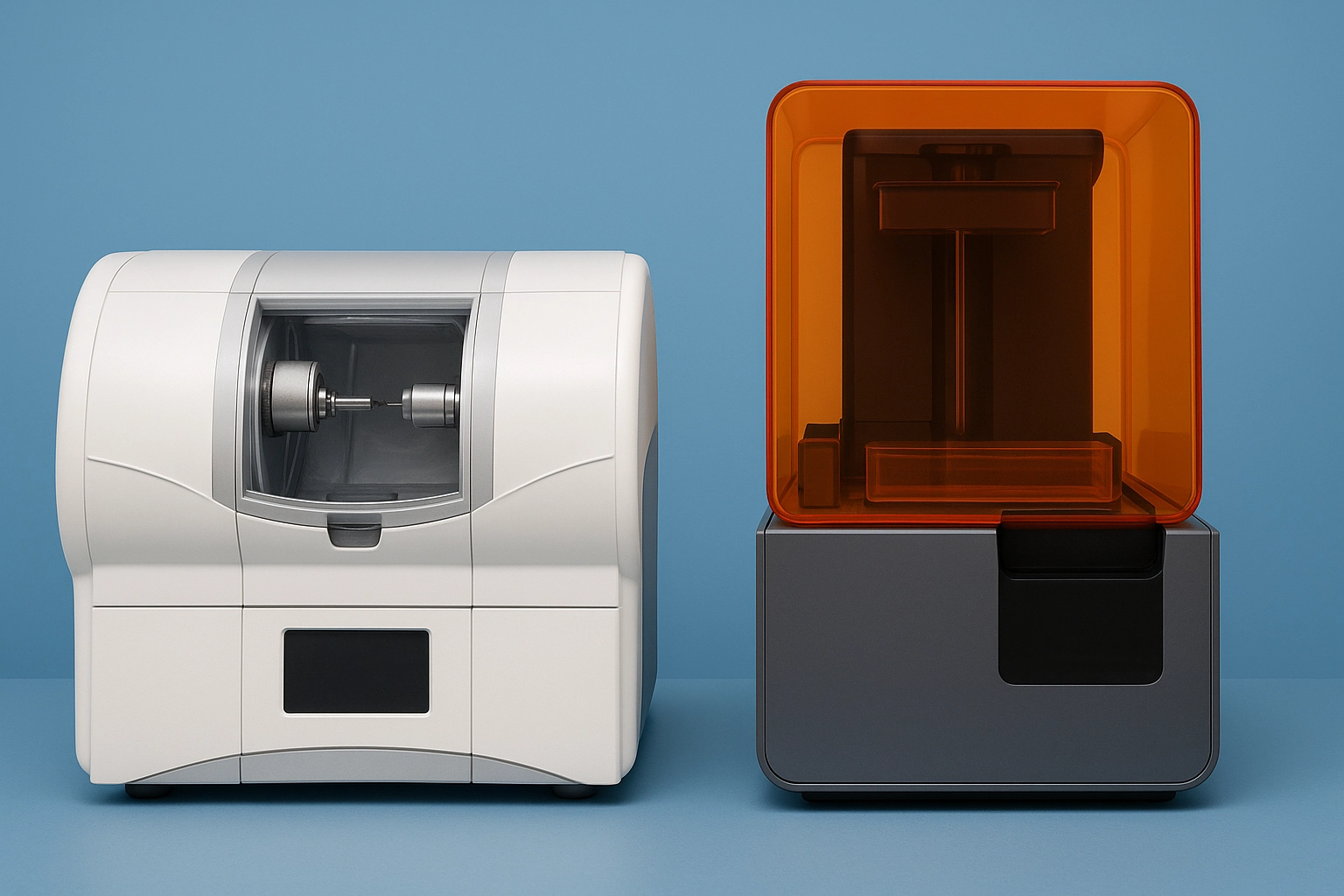
What Affects the Cost of Dental Implant Treatment in Sussex, UK?
If you’re exploring solutions for tooth loss, chances are you’ve already come across dental implants as a modern, reliable, and aesthetically pleasing option. But one of the most common - and often most confusing - questions patients ask at Brighton Implant Clinic is: “What affects the cost of implant treatment?”
The answer is not always straightforward. Dental implants are not a one-size-fits-all treatment, and that’s why the cost can vary significantly from one person to another.
In this guide, we’ll break down all the factors that influence the overall cost of dental implants in the UK - so you can make informed decisions about your dental health and investment.
Number of Implants Required
The total number of implants you need is often the starting point for estimating treatment costs.
If you’re missing a single tooth, you may only need one dental implant. However, for those missing multiple teeth or a full arch, the cost increases proportionally. Treatments like the All-on-Four or Teeth in a Day, available at Brighton Implant Clinic, can be more cost-effective for full arch restoration, but still involve multiple implants, surgical time, and prosthetic components.
Each implant placement not only involves additional materials but also extends chair time and surgical complexity - key elements that drive up the price.
Type and Quality of Implant Materials

Once the number of implants is determined, the next major cost factor is the type of implant material used.
At Brighton Implant Clinic, we primarily use titanium implants, which are well-documented for their durability and biocompatibility. For patients seeking metal-free alternatives or with sensitivities, zirconia implants offer another solution - though they can be more expensive due to their newer technology and manufacturing complexity.
Beyond material, the brand and system of the implant can influence the cost. Reputable implant systems with long-standing success rates often come at a premium but offer predictable outcomes, which many dentists, including our team, find worth the investment.
Restoration Type and Material
The implant is just one part of the puzzle. What sits atop the implant—called the restoration—is another significant cost component.
Restorations include:
- Crowns (for single teeth)
- Bridges (for multiple adjacent teeth)
- Overdentures (for full arch replacements)
The material chosen - typically zirconia at our clinic - affects not only aesthetics but also price. Zirconia is known for its strength, natural tooth-like appearance, and low plaque retention, making it an ideal but slightly costlier option compared to acrylic or metal composites.
Necessity for Preliminary Procedures

Before implant placement, many patients require additional treatments to prepare the mouth.
These can include:
- Bone grafting (to augment jawbone density)
- Sinus lifts (for upper jaw implants)
- Tooth extractions (removal of decayed or damaged teeth)
These steps improve implant success rates but add both time and cost to your treatment plan. A proper clinical assessment with imaging is essential to determine whether these procedures are necessary.
Diagnostic Imaging and Planning
High-precision planning is essential for successful implant outcomes - and that requires advanced diagnostics.
Brighton Implant Clinic uses 3D CT scanners, which allow us to evaluate bone structure, nerve locations, and sinus cavities. This level of planning ensures accurate implant placement and reduces complications - but acquiring and maintaining this equipment is a significant investment, which is reflected in the treatment cost.
Expertise and Experience of the Dental Professional
The experience of the implantologist directly impacts the cost - because it impacts your results.
Implant dentistry is a highly technical discipline. Dentists like Dr. Bruno Silva, founder of Brighton Implant Clinic, undergo years of surgical training and continuous professional development. This level of expertise not only boosts your chance of a long-lasting result but also adds value to your care.
Remember: when it comes to implants, cheaper isn't always better - expertise can save you from complications or costly revisions down the line.
Technological Advancements and Equipment Used

Modern implant dentistry is powered by cutting-edge equipment.
Our clinic uses:
- In-house milling machines and 3D printers for crowns and bridges
- Surgical guide software for precise implant placement
- PRP (Plasma Rich Proteins) to accelerate healing
While this technology enhances outcomes and reduces treatment times, the investment in such high-end tools does influence treatment pricing.
Geographic Location and Clinic Overheads
The location of the dental clinic and its operating costs also play a role in pricing.
With four branches across East and West Sussex, Brighton Implant Clinic manages:
- Building rent and utilities
- Highly trained dental and support staff
- Regulatory compliance and safety measures
Maintaining a premium standard of care and environment means our overheads are higher than average, but it ensures that you receive excellent service at every step.
Sedation and Anesthesia Options
For patients with dental anxiety or undergoing complex procedures, sedation options are available—ranging from local anaesthetic to IV sedation.
These services are administered safely by trained professionals and monitored closely, but the type of sedation chosen can impact your overall bill.
Post-Treatment Care and Maintenance
Aftercare is a vital part of implant success and longevity.
This includes:
- Follow-up visits for healing assessments
- Hygiene checkups to prevent peri-implantitis
- Occasional adjustments to the prosthetic components
While not always itemized in initial quotes, these services are essential and should be considered in your total cost estimate.
Comparison Table: Key Cost Factors for Dental Implants
FAQs About Dental Implant Costs
Why do dental implant costs vary so much?
Dental implant costs vary due to a combination of clinical, technical, and geographical factors. Differences in dentist experience, materials, restoration type, and preparatory needs all contribute to the variation in pricing.
Are dental implants worth the investment?
Yes. While the upfront cost may be higher than other options, dental implants offer superior functionality, aesthetics, and long-term value. They're designed to last decades with proper care.
Does insurance cover dental implants in the UK?
In most cases, dental implants are not covered by NHS or standard dental insurance. However, private insurance may reimburse part of the cost, especially for medical necessity cases.
What is the cost of a single dental implant?
At Brighton Implant Clinic, the cost of a single dental implant with a crown typically starts from £1,495. The final price depends on diagnostic findings and patient-specific factors.
Can I finance my dental implant treatment?
Absolutely. We offer interest-free finance options to help make treatment more accessible. You can discuss available plans during your consultation.
Conclusion: More Than a Price Tag - An Investment in Health and Confidence
While it's tempting to focus purely on the price of dental implants, remember that this treatment is an investment in your smile, health, and self-confidence. The cost of dental implants is influenced by a variety of factors - each playing a crucial role in ensuring a successful, lasting result.
At Brighton Implant Clinic, we take pride in offering high-quality dental implant treatments tailored to each patient’s needs. From advanced diagnostics and materials to experienced care and after-treatment support, we ensure every step is optimized for your well-being.
Still have questions about your treatment plan or want a personalized cost estimate?
Book your consultation with Brighton Implant Clinic today!










